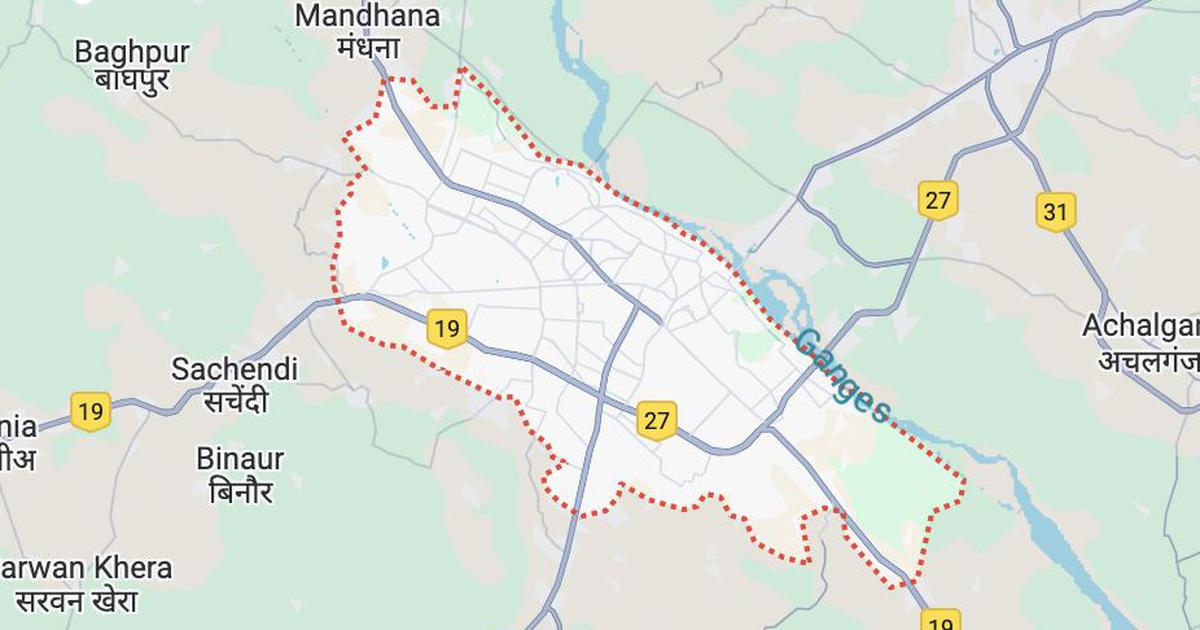
A prominent Hindu sect that operates a New Jersey temple raided by federal authorities earlier this year is facing new accusations that it forced hundreds of low-caste workers to labor at worship sites across the United States under dangerous conditions for little pay.
In a lawsuit filed in New Jersey federal court and amended last month, lawyers representing the workers accused the sect, known as BAPS, of luring laborers from India to work on temples near Atlanta, Chicago, Houston and Los Angeles, as well as in Robbinsville, N.J., paying them just $450 a month.
The suit was originally filed in May, on the same day that federal agents descended on the New Jersey temple, removing about 100 workers in an early morning action that was said by several people with knowledge of the matter to be connected to possible violations of labor and immigration laws.
At the time, the lawsuit focused only on the temple in New Jersey, claiming men were brought into the country under false pretenses and then worked seven days a week to build and maintain the sumptuous structures and grounds for as little as $1.20 an hour. The amended lawsuit expanded those claims to include temples around the country where some of the men said they were also sent to work. Hundreds of workers were potentially exploited, the lawsuit claimed.
The lawsuit claimed the temple workers were presented to U.S. immigration officials as volunteers trained to do specialized work such as stone carving or painting, qualifying them for religious, or R-1, visas.
Leaders for the sect, Bochasanwasi Akshar Purushottam Swaminarayan Sanstha, have strenuously denied any wrongdoing. A lawyer for BAPS, Paul J. Fishman, a former U.S. attorney for New Jersey, said the federal government has routinely allowed stone artisans to qualify for R-1 visas and that agencies had regularly inspected “all of the construction projects on which those artisans volunteered.”
It is unclear if the federal agencies that removed the workers from the New Jersey temple — including the F.B.I., the Department of Homeland Security and the Department of Labor — are criminally investigating the sect. Representatives for the Homeland Security and Labor departments declined to comment; a spokeswoman for the F.B.I. said the agency could not “confirm nor deny the existence of investigations.”
BAPS, which has strong ties with Narendra Modi, India’s prime minister, has built temples around the world that draw visitors with impressive spires and arches, intricate stone carvings, gurgling fountains and wandering peacocks. Mr. Modi and his ruling Bharatiya Janata Party have underscored their connection with the sect as they have sought to shift India from its secular foundations toward a Hindu identity. Over the years, the BAPS organization has grown into the largest Hindu sect in the United States and a global enterprise made up of both for-profit and nonprofit entities.
The organization also pledged the equivalent of about $290,000 to Mr. Modi’s most important election promise: building a temple in the city of Ayodhya, where a mosque had stood before Hindu devotees destroyed it in 1992.
The New Jersey lawsuit said workers were lured to the United States with the promise of fair pay and good hours, but instead they had nearly no time off from work that was grueling and frequently dangerous, moving stones that weighed several tons and facing health risks from exposure to harmful dust and chemicals.
The workers were confined to the temples and their living quarters and had their passports confiscated, according to the claim. Forbidden from speaking to visitors, they were also threatened with retaliation if they spoke out about their working conditions.
The men were intentionally recruited based on their marginalized status; most are Dalit or Adivasi, from the lowest rungs in India’s social hierarchy, the lawsuit claimed, adding that one overseer called the workers “worms.”
“It’s important that all workers who saw their labor and civil rights violated at BAPS temples across the U.S. have the opportunity to seek justice,” said Daniel Werner, a lawyer in the wage claim suit.
The amended complaint accused BAPS officials of violating state labor laws and the Racketeer Influenced and Corrupt Organizations Act, better known as RICO, which was created to go after organized crime. There are hefty requirements to allow a lawsuit to move forward as a RICO case; judges are reluctant to permit state law claims to turn into federal cases by claiming there has been a violation of the RICO Act.
The raid in May occurred after a worker died at the New Jersey temple in late 2020, and a co-worker, 37-year-old Mukesh Kumar, contacted a lawyer. The lawsuit claimed that at least three other workers who had labored on BAPS temples died in India shortly after leaving the United States.
Of the 21 named plaintiffs in the amended lawsuit, 17 are in India and were no longer working at the New Jersey temple when federal authorities arrived, according to the men’s lawyers.






